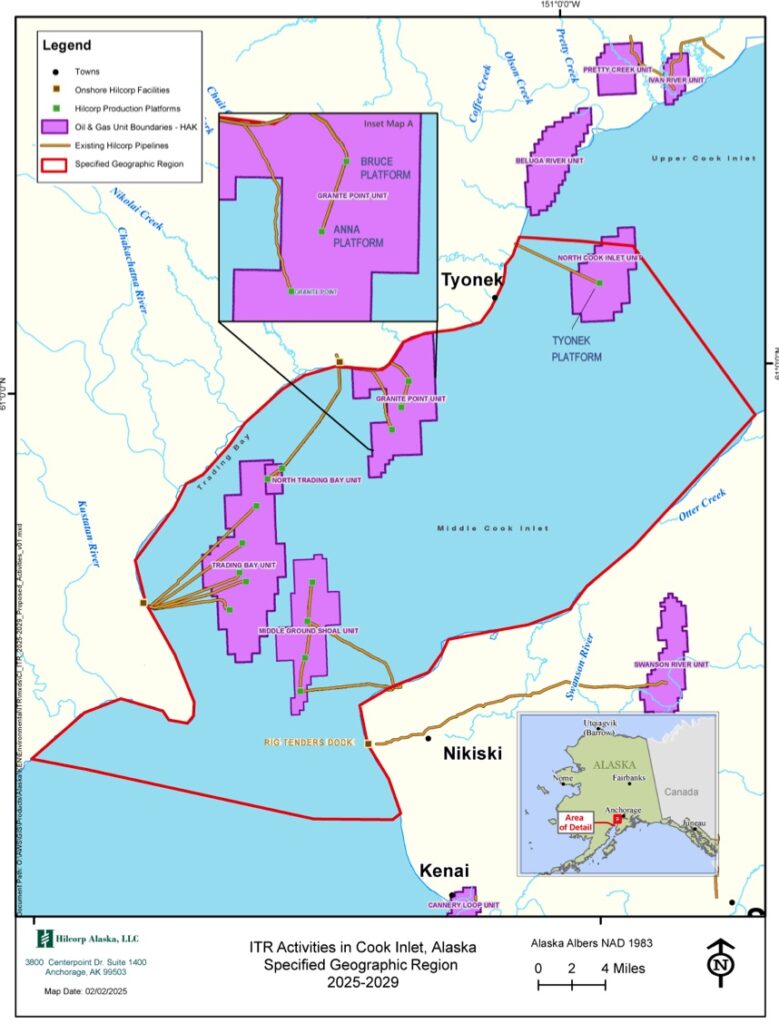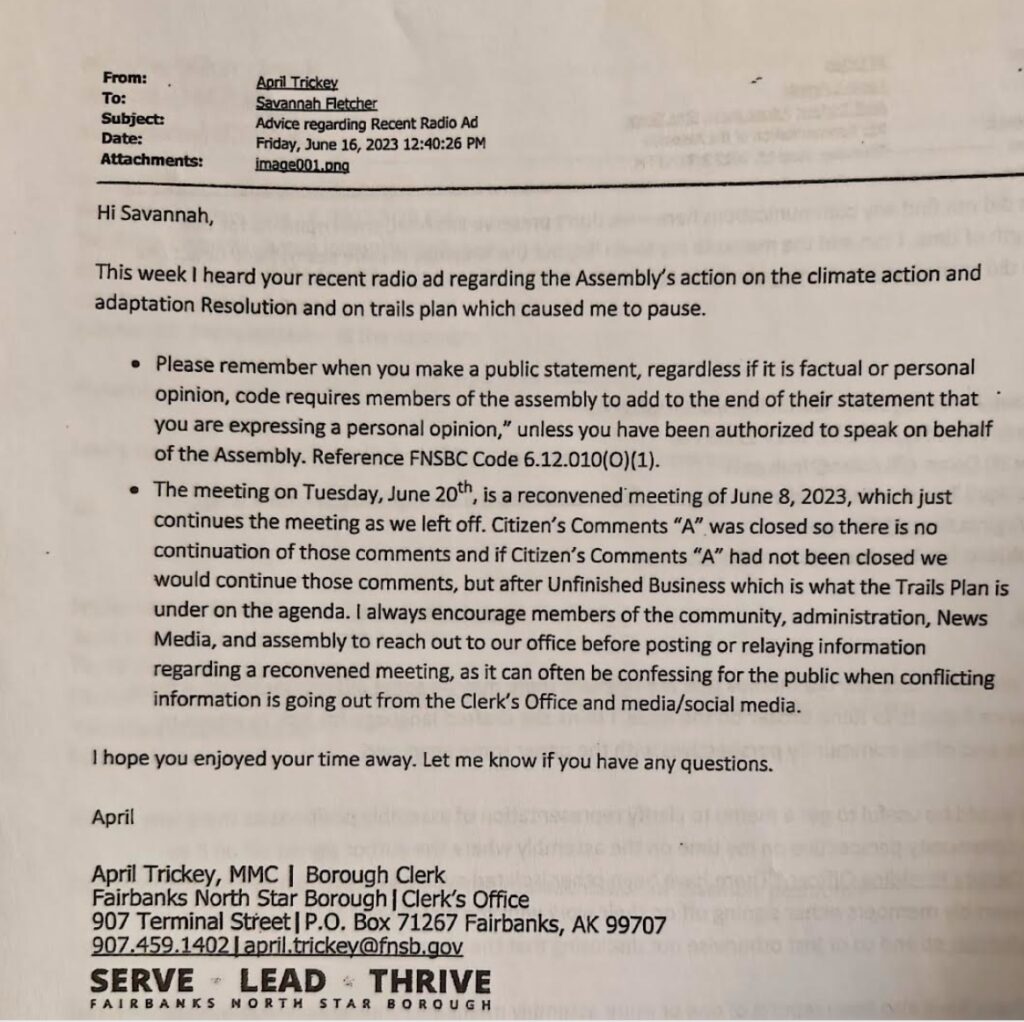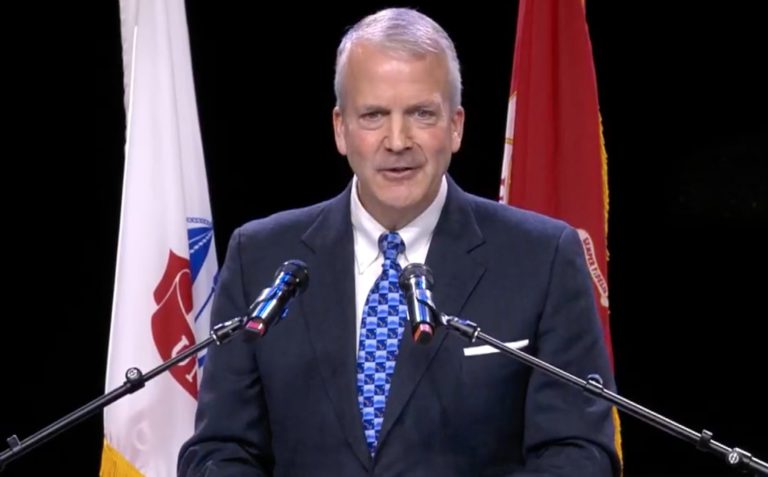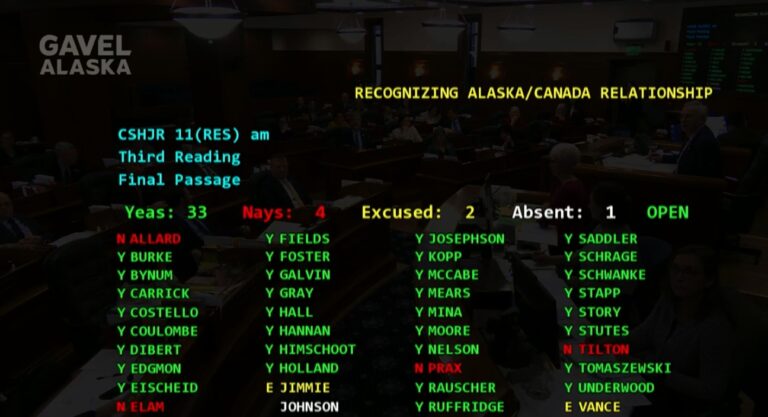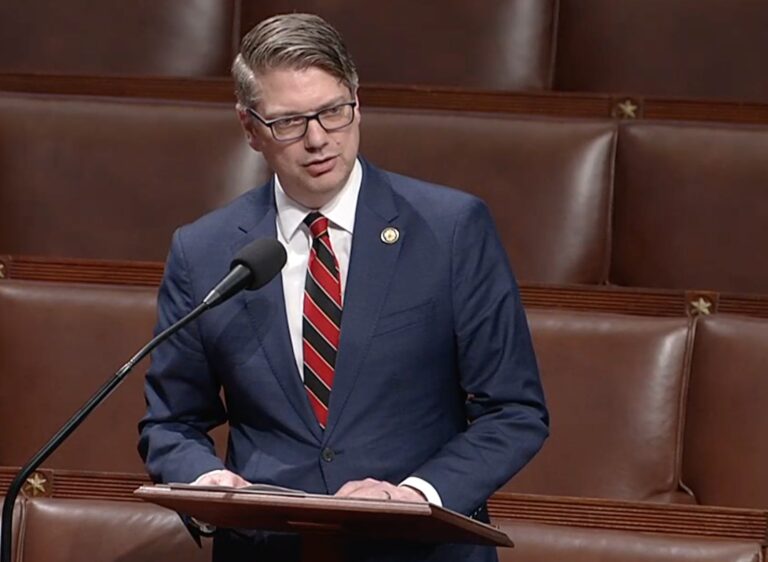By SEN. DAN SULLIVAN
In my address to the Alaska Legislature last week, I described two historic, competing visions for our state.
The first, which I strongly agree with, envisions unlocking the wealth of Alaska to create sustainable, private sector economic growth and good-paying jobs. The other sees our state more as a territory run by an absent federal landlord who protects us and occasionally gives us scraps from the wealth of America’s table to keep us happy.
This arrogant federal landlord view of Alaska reached its zenith under President Joe Biden with his “Last Frontier Lock-Up”—an unprecedented 70 executive orders and actions exclusively focused on Alaska and shutting down our private sector economy, harming working families, and killing hundreds if not thousands of jobs.
Thankfully, it is a new day in Alaska. With the stroke of a pen, on his first day in office, President Donald Trump started to undo so much of the harmful Biden Lock-Up.
President Trump’s day-one, Alaska-specific executive order (EO) revived the optimistic vision for our state and sent an unmistakable message that unleashing Alaska’s extraordinary resources and creating Alaskan jobs is one of his administration’s top priorities.
This once-in-a-generation EO and the strong support we have from the new administration led to a very good week for Alaska.
Literally as I was delivering my speech, the Department of the Interior released another order—which implements key elements of President Trump’s day-one EO—to lift a decades-obsolete Public Land Order, PLO 5150, long used to hinder major resource projects in our state. This order not only puts ANWR and NPR-A back on the table for responsible development, it also enables the State of Alaska to select the lands along the Dalton Highway Corridor for conveyance, including the land beneath the Trans-Alaska Pipeline. This is huge.
Last week, we also saw important progress behind our massive Alaska LNG Project, which now has the full-throated backing of the President of the United States and his entire cabinet. On Thursday, Taiwan’s state-owned oil and gas company, CPC, signed a letter of intent with the Alaska Gasline Development Corporation to purchase large amounts of clean burning Alaska natural gas. My team and I have worked relentlessly with Governor Dunleavy and his team to achieve this momentum and support.
Finally, the Alaska Department of Natural Resources just recently announced its official North Slope oil production forecast, which estimates an official forecast of nearly 657,000 barrels per day and a high forecast of 931,000 barrels a day by 2034. The renaissance on Alaska’s North Slope continues.
Needless to say, it was a very good week for Alaska.
At the same time, National Democrats and Senate Minority Leader Chuck Schumer recently experienced perhaps their worst week in years. Since the passage of the continuing resolution (CR) in the Senate, they have been at each other’s throats. Many House and Senate Democrats have been calling for Schumer to step down as Minority Leader. He even had to cancel his book tour because of security concerns. Was it because of right-wing agitators? No, these threats came from far-left radicals, if you can believe that.
The Democrats have spent the whole week attacking the Senate Minority Leader, which gives him much less time to continue damaging our country—and, particularly, Alaska. Chuck Schumer is almost certainly the most anti-Alaska Senate Leader in U.S. history, with a particular disdain for Alaska Native people.
But none of this would’ve happened—good week for Republicans; chaos for the National Democrats—had the Senate passed ANY amendments to the CR we were debating on the floor, which ended up being the source of Schumer’s very bad week. In advancing the CR, Republicans showed unusual and critically-important unity. The House passed the CR with only one Democrat supporting it and only one Republican defector.
Most Beltway prognosticators—and Chuck Schumer—didn’t believe House Speaker Mike Johnson could pull off this daunting task. But he did.
When that bill came over to the Senate, Chuck Schumer had one major goal in mind: bring amendments to the floor and get them to pass. Why? ANY amendment that passed would’ve required the CR to go back to the House.
The federal government would have shut down, because the House had already recessed and left town; President Trump and congressional Republicans would’ve been blamed; and the Democrats’ complete disarray and civil war would not have happened over the past week.
So, Senate Republicans’ goal was to make sure no amendments were attached to the CR. That included an amendment offered by Senator Rand Paul to codify cuts made by Secretary of State Marco Rubio, in conjunction with DOGE, to USAID—America’s foreign aid agency.
I agreed with the substance of the Paul amendment. We need to scrutinize waste that clearly exists in our foreign aid programs, and properly put USAID under the clear authority and oversight of the State Department. But the timing of this amendment would’ve been a disaster had it passed. It would have let Schumer off the hook, and put the blame and focus for a federal government shutdown on President Trump and House and Senate Republicans.
Thankfully, the amendment didn’t pass. Some have criticized me for voting against it, but the whole point of my vote had nothing to do with the policy, but everything to do with the practical consequences of it actually passing.
If the CR had not passed, not only would the government have shut down, this would have blocked the largest pay raise for junior enlisted troops in decades, major funding for the US Coast Guard, and other important priorities for Alaska.
As Alaska’s Senator, I am firmly committed to right-sizing our federal government, tackling the national debt, and working with the Trump administration to unleash Alaska’s extraordinary resource potential. I am also committed to delivering as many “bad weeks” for Chuck Schumer as possible.
Sen. Dan Sullivan has served in the US Senate for Alaska since 2015.


